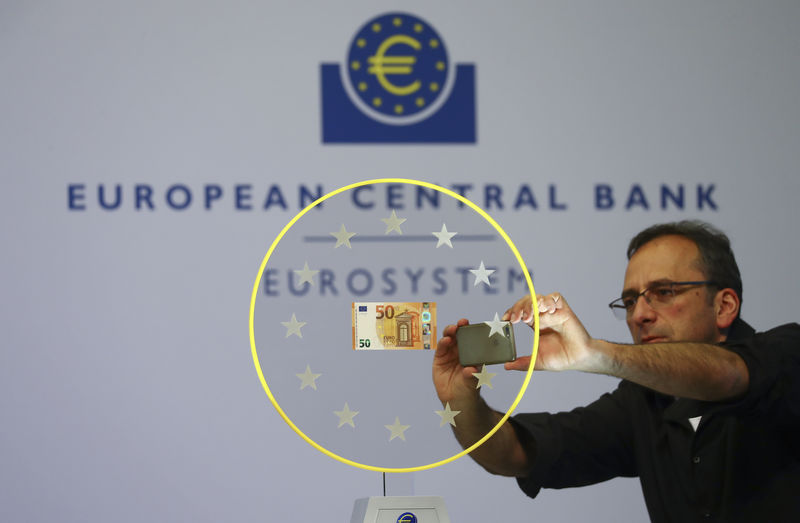Intel stock extends gains after report of possible U.S. government stake
Investing.com -- The European Central Bank (ECB) policymaker Martins Kazaks has called for an end to the ECB’s consistent interest rate cuts, arguing that preserving flexibility is essential amid persistent economic uncertainty, Reuters reported on Friday.
The ECB reduced interest rates for the seventh consecutive time on Thursday in an effort to support the euro zone economy, which has been under pressure even before being further strained by unpredictable U.S. trade and economic policies.
Kazaks signaled that the current easing cycle should conclude, stressing that the ECB should maintain room to act later if needed.
He said that markets should not expect rate cuts at every meeting going forward, as there is no immediate necessity and it is beneficial to retain policy space.
According to Reuters sources, most ECB policymakers are inclined to keep interest rates, currently at 2%, unchanged at the next meeting in July or possibly for a longer period, depending in part on developments in trade relations with the United States.
Kazaks expressed support for a potential pause in July but cautioned against issuing firm commitments about future policy directions.
He flagged the lack of significant new data before the next meeting and suggested that a pause could be likely.
However, he underscored the high level of uncertainty and the rapidly shifting political landscape, indicating that forward guidance could be counterproductive under such conditions.
Regarding the prospect of further rate reductions, Kazaks emphasized that any future moves would likely be small, technical adjustments rather than part of an ongoing easing cycle, so long as inflation remains near the ECB’s 2% target.
He noted that the ECB had already implemented substantial cuts and that future changes would only be warranted if the economic outlook deviated from the baseline scenario.
The ECB’s latest projections, published Thursday, show inflation at 2% in 2025, dipping to 1.6% in 2026, and returning to 2% in 2027.
Kazaks welcomed these forecasts but pointed out that the temporary decline in inflation next year, linked to a stronger euro and falling fuel prices, requires careful monitoring.
ECB has achieved its 2% inflation target, and he stressed the importance of maintaining that level.
He stressed the need for continued vigilance as inflation is expected to fall below target for a period.
